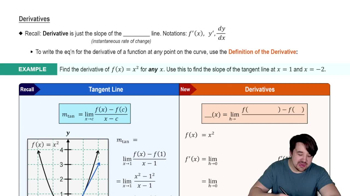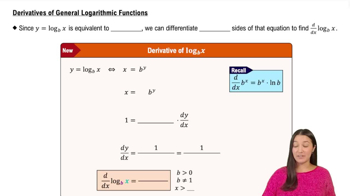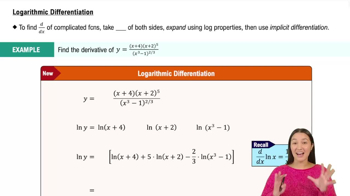75–86. Logarithmic differentiation Use logarithmic differentiation to evaluate f'(x).
f(x) = x⁸cos³ x / √x-1
 Verified step by step guidance
Verified step by step guidance Verified video answer for a similar problem:
Verified video answer for a similar problem:



 6:30m
6:30mMaster Logarithmic Differentiation with a bite sized video explanation from Patrick
Start learning